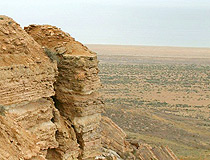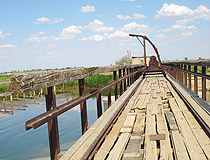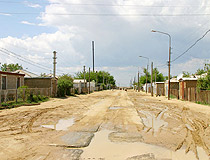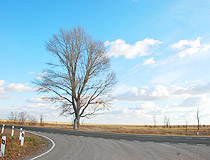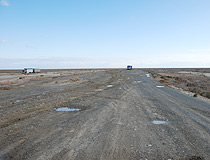Aktobe oblast overview
Aktobe, also spelled Aktyubinsk (Russian spelling) is region (oblast) of western Kazakhstan. Aktobe oblast was created in 1932. The capital city is Aktobe. The origin of name: “aktobe” from Kazakh people language means “white hill”.
Aktobe oblast population is about 720,000 (2009) on the land area of 300,600 sq. km.
Aktobe oblast facts
The greater part of Aktobe oblast is a raised plain broken by river valleys. In the center of the region are Mugodzhar Hills, and in the south the desert sands of Aral Kara-Kum and Large and Small Barsuki.
The climate of Aktobe region is continental, and precipitation is low, particularly in the south. The river network of the region is scanty. Main rivers of Aktobe oblast are Emba, Or and Ilek (both tributaries of Ural river), and Irgiz, which flows into Shalkarteniz salt marsh.
Aktobe oblast nature
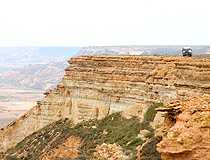
Aktobe oblast, Kazakhstan view
Author: Eugen Belayev
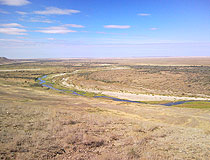
Aktobe region landscape
Author: Y.Peng
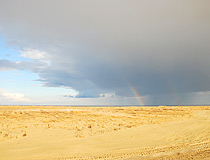
Aktyubinsk oblast scenery
Author: Timur Sharipov
Aktobe oblast economics
Most of Aktobe region processing industries are concentrated in the capital - Aktobe city. Crops, chiefly grains, are grown in the northwest of Aktobe oblast, and the remaining dry steppe and desert areas are given over to sheep, horses, and camels. Nearly half of the population of Aktobe region is Kazakh, about a quarter Russian, and one sixth Ukrainian. About 50 percent of Aktobe region population is urban.
Mugodzhar Hills of Aktobe oblast have rich chromium deposits as well as nickel and copper. The chromite is mined near Khromtau, which has perhaps the largest deposit of high-grade chromium ore in the world, and the nickel at Batamshinsky.
There are large phosphorite deposits at Oktyabrsk (formerly Kandagach) in the region, but these are not exploited in the local production of fertilizers at Alga, which utilizes phosphorite imported from the Kola Peninsula. Alga is also the major Kazakhstan producer of borax, based on supplies imported from Atyrau oblast.





